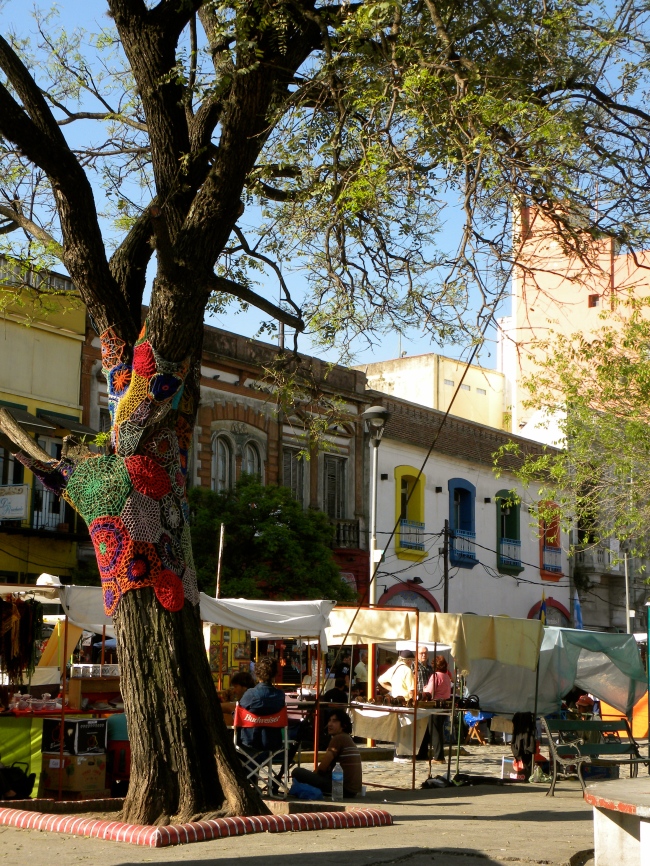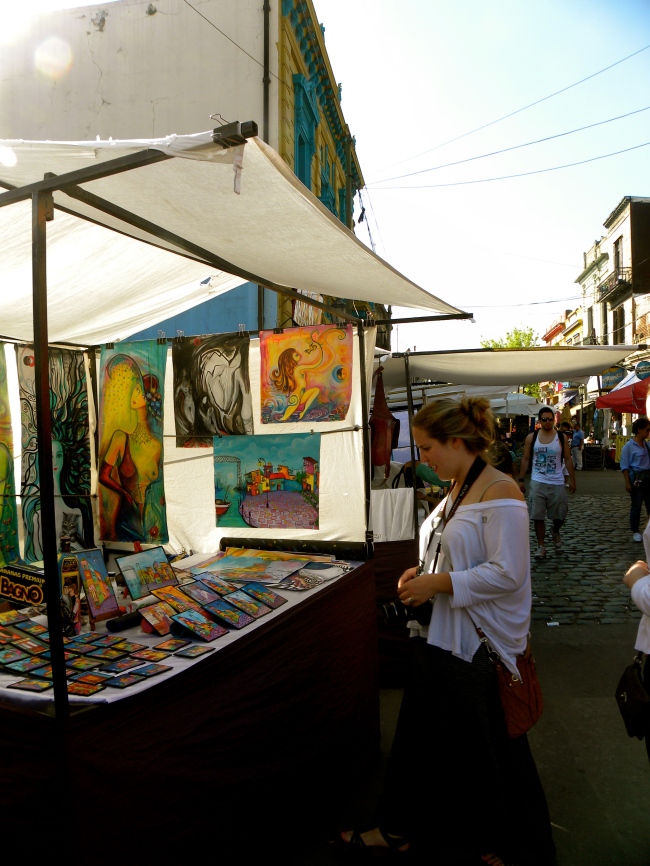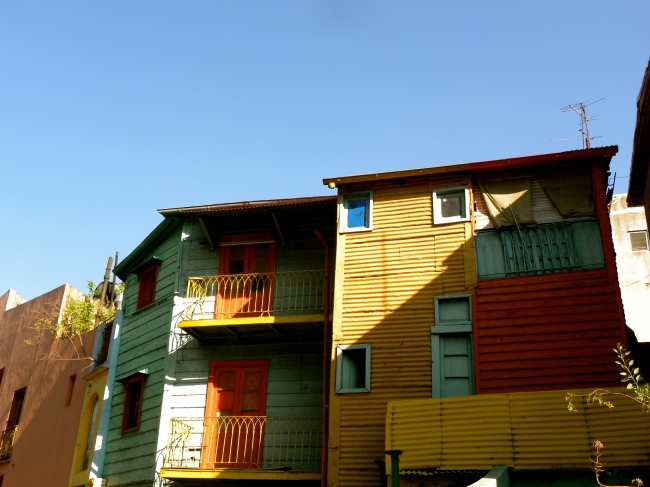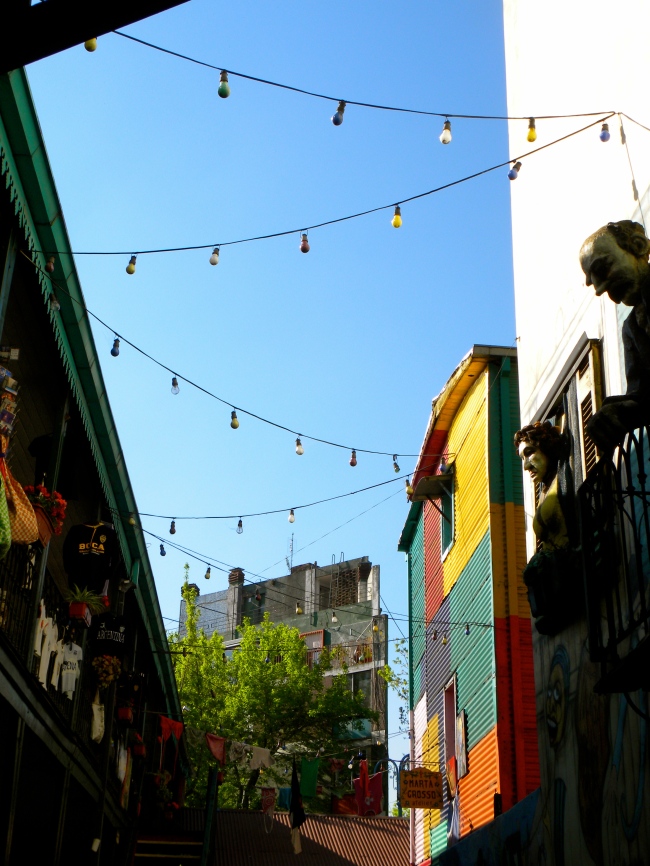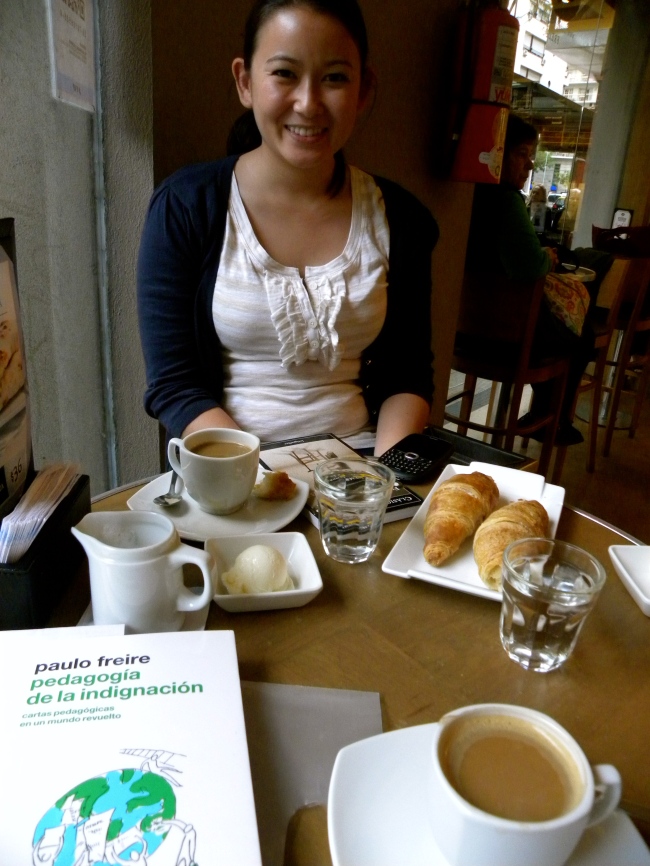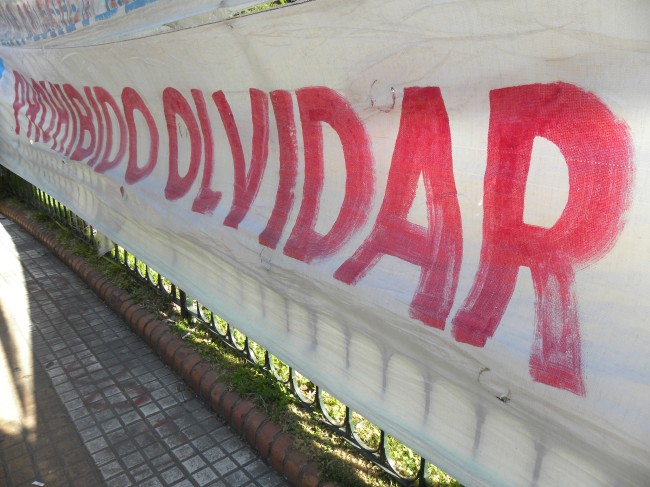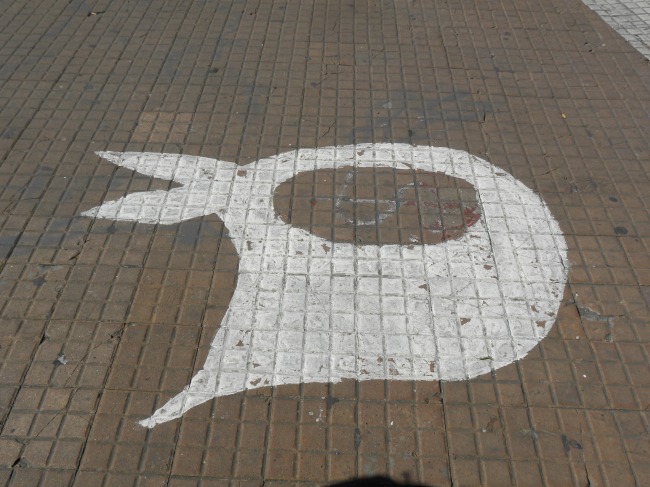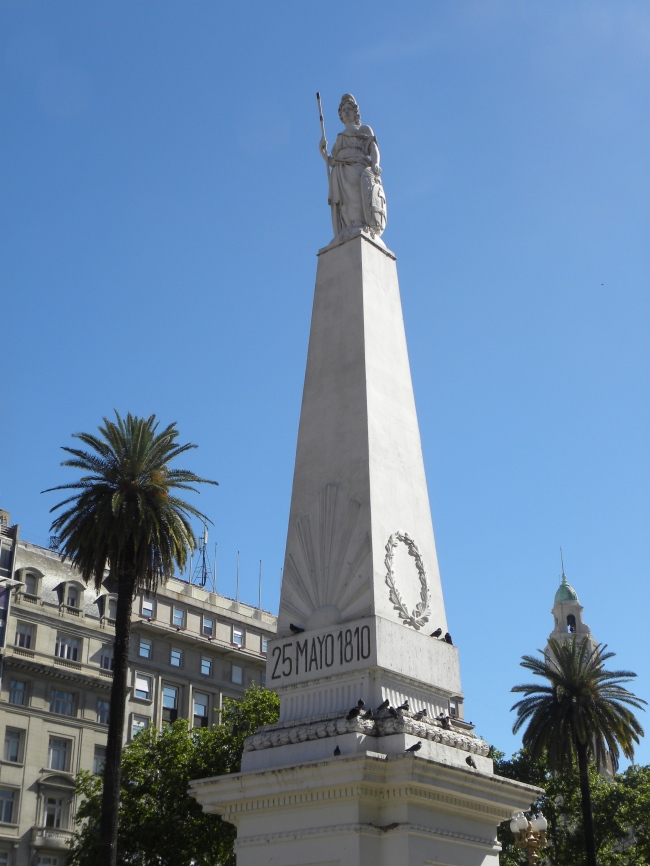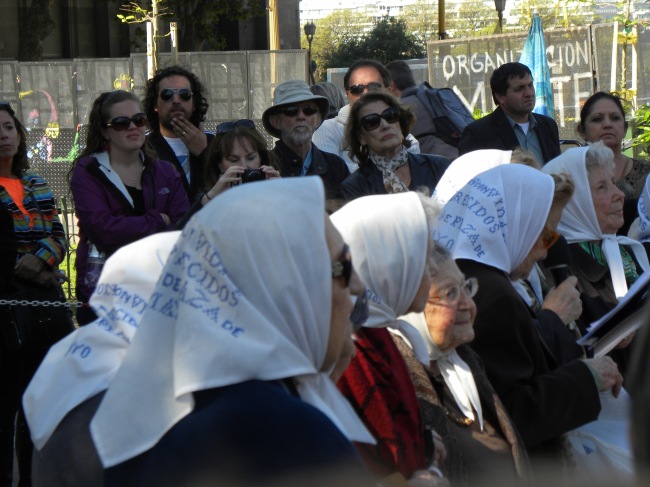Buenos Aires is like a utopian dream thus far. When Santiago was described to me as a European city, I pictured Paris: cafes on every corner, beautiful European architecture, civilization. (What I got was graffiti on every building and a lot of stray dogs. But that’s beside the point–I’ve come to love Santiago for what it is.) Now, though, I do finally have that European experience in our two-week comparative excursion to Argentina. I have spent this last week drinking pretentiously small cups of black coffee and eating medialunas in cafes with names like “El Gato Negro,” perusing used bookstores and buying works by Paolo Freire or Rousseau’s translated works on pedagogy, taking boat tours of the rivers around El Tigre, getting into Fitzgerald-esque speakeasies by telling a secret password to a bouncer and putting a pin-number into a phone booth with a secret door, and nibbling miniature dulce de leche cookies (alfajores). It’s as though I’m on a two-week vacation, especially because, although we are attending classes and seminars and school visits, we don’t have any real work until our research projects begin on November 2nd.
Our hotel for our first night’s stay in Buenos Aires.
Boca Juniors: possibly Buenos Aires’s most well-known soccer team, known for its fans that could probably be put on the same level as the Crazies in terms of their passion. Like, it’s actually dangerous to go to games because they get so rowdy and violent over futbol.
La Boca, a now-touristy port neighborhood of colorful buildings and tango shows.
El Ateneo, a famous bookstore in Buenos Aires located in a renovated theater.
El Tigre: an hour’s train ride outside of the city, where the porteños go to soak up sun and walk along the river banks.
The other utopian aspect of Argentina’s society lies in its public education system. In comparison to Chile especially, it’s like a dream. While Chile spends 3% of its GDP on education, Argentina spends 6%; where Chileans have trouble accessing the higher education system, Argentinians can go for free, without applications or entrance exams; while Chile still does not implement effective bilingual education programs, Argentina promises education in the mother tongue for all. We have only visited 3 schools so far, and therefore I cannot make any firm conclusions about how this system actually works–I can only explain the aspects of education that have caught my eye.
1. Sexual education: In Chile, it only exists nominally. In reality, heavy influence from the Catholic Church means that it’s only really taught in a biological sense. Here, condoms can be found in some public schools–and it’s talked about. In one secondary school we visited (this means about 7th grade to 12th grade by US standards), the school has a nice, neat nursery, free for use by student mothers. This brings up further questions, though. If sex ed is such a thing here, why were there still so many pregnant and nursing students in this single high school? The sex ed teacher explained to us that, for many of these mothers, their babies were not accidents. Having a child in that community means that the neighborhood cares for you and protects you. Culturally, they wanted to have a baby. Just…things to think about.
2. Music appreciation: Even schools that are the poorest of the poor have music programs, it seems. Buenos Aires in general has a huge culture surrounding the arts, from tango shows in the streets to theaters on seemingly every corner in the city center: artists are respected. Last week, we visited a reentry high school for those who had dropped out. The school has a normal high school curriculum, but also includes workshops to learn skills in the television and radio industry, photography, graphic design, and music. We spoke with students who had only been playing instruments for a few months, but had already started bands and realized their dreams of becoming gran concertistas or music producers. In Chile, a member of our group had interviewed the principal of a school, who said, “How many Van Goghs are we killing by not offering arts classes?” It’s true. And it’s very applicable to funding cuts in the US, as well. How can students realize their passions and talents if they never have a chance to learn once those are? (Side note: one boy, Chuckie, told us, “I want to change the world with my music–like Justin Bieber.” He then went on to explain that he wanted to use lyrics that respected women and didn’t just talk about drugs and sex, so I guess that kind of outweighs his previous comment about the Biebs.)
3. Collective memory: La Ley de Educación Nacional, implemented in 2006, requires collective memory to be taught in public schools. Unlike in Chile, where there are no specific curricular requirements about teaching about Pinochet, leading to a lack of understanding about the human rights violations of the time, Argentina wants to teach its students about the country’s past. We haven’t studied this fully, so I can’t explain in detail, but it does suggest that their is a greater focus on justice and rights.
“Forgetting is prohibited”
Las Madres de la Plaza de Mayo: Mothers whose children disappeared during the Videla dictatorship (1976-1983). Every Thursday, they march in front of La Casa Rosada (the pink version of the White House) in order to increase awareness and stand as a reminder of what took place. Many school groups had taken field trips to watch while we were there.
4. Equality. Every student in public elementary schools is required to wear a guardapolvo blanco–essentially a white smock, or more like a white lab coat, that is worn over your clothes to take away reminders of socioeconomic differences. Rather than showing off a new t-shirt as opposed to someone else’s ragged one, students are reminded that, at our core, we are all the same. Another aspect of this can be found in Argentina’s lack of tracking or course selection. Unlike in the US, where you can choose AP English over the normal course, or choir instead of Spanish, in Argentina, everyone takes the same classes. This fosters a sense of collective work, as opposed to individual success.
But, for me, this seems to create more problems than it would benefits. Difference should be celebrated, not ignored–and while the reminder of equality should be more present in our world than it currently is, that doesn’t mean you should force the advanced kids to sit in a class that’s too boring for them, or expect a student with less academic success to be able to pass the same class as the future valedictorian. Argentina has a huge problem with dropouts, mainly due to the issue of sobreedad in schools: because all need to pass the same classes, if you fail one, you need to repeat the entire year, meaning that you end up with 17-year-olds in freshmen courses. I don’t blame them for choosing to quit school, considering school has essentially quit them. We shouldn’t expect everyone to be able to do the same things with the same ability. Yes, we should have high expectations for all, for this will lead to achievement; and yes, we should foster group work, such that the advanced kids can teach the ones who are a little behind, fostering leadership skills and full comprehension for all. However, I know that I belonged in choir in high school, while others belonged in autoshop; I needed to stop pursuing science and start taking extra English courses, while others needed to take sports medicine and AP Biology. That does not say anything about dividing us as a class or creating separation–yes, tracking does create some problems in terms of the “smart kids versus the dumb kids,” but selection of courses also allows you to function at the level you need to, gaining the support and attention that you require at that point in time, and to focus on your own unique interests and passions. We’re all different. We should work with those differences rather than pretending they don’t exist.




